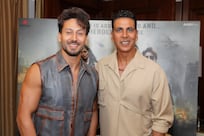NEW YORK // The US president Barack Obama made his debut at UN headquarters yesterday, warning world leaders of environmental catastrophe if they fail to agree on the terms of a new climate change treaty. Mr Obama continued to stress the multilateral approach that sets him apart from his predecessor, George W Bush, calling on delegates to work "boldly, swiftly and together" on a successor agreement to the 1997 Kyoto Protocol. While the US leader spoke with his customary flair, his speech was short on the specifics offered by China's president, Hu Jintao, who unveiled plans to reduce dependency on fossil fuels in the People's Republic. Despite positive overtures from many leaders, it remains unclear whether the summit will break the deadlock in negotiations towards a new climate change treaty, due to be finalised by more than 190 nations in the Danish capital in December. "As we head towards Copenhagen, there should be no illusions that the hardest part of our journey is in front of us," Mr Obama told delegates during his first speech inside the UN General Assembly hall. "We seek sweeping but necessary change in the midst of a global recession, where every nation's most immediate priority is reviving their economy and putting their people back to work." Convened by the UN secretary general Ban Ki-moon, the meeting brought together a record number of more than 100 heads of state and government to debate reducing emissions of carbon dioxide and other greenhouse gasses. The top-level presence of China and the US - the world's two biggest polluters - is seen as particularly important as neither country signed the Kyoto Protocol, which set emissions limits on industrialised countries that expire in 2012. While China is exempt as a developing country, the Bush administration rejected the pact over concern that it would harm the US economy and because lawmakers objected that China was not included. Negotiations on a successor treaty have run into similar problems, with rifts emerging between the developed and the developing world over the extent to which each side is obliged to cut greenhouse gas emissions. While European Union members have agreed to make 20 per cent cuts in carbon dioxide emissions by 2020 from 1990 levels, some developing nations are calling on rich countries to aim for as much as 45 per cent. Meanwhile, experts continue to warn of looming disaster - from melting glaciers to rising sea levels and ever-worse drought - if industrial and developing nations cannot collectively address a warming planet. "We cannot allow the old divisions that have characterised the climate debate for so many years to block our progress," said Mr Obama. "Yes, the developed nations that caused much of the damage to our climate over the last century still have a responsibility to lead. But those rapidly-growing developing nations that will produce nearly all the growth in global carbon emissions in the decades ahead must do their part as well." Mr Obama outlined US policy shifts since he took office in January, with the House passing a bill this summer to set the first mandatory limits on greenhouse gases, in which factories, power plants and other sources would be required to cut emissions by about 80 per cent by 2050. But a Senate version of the bill appears increasingly unlikely as legislators wrestle with overhauling the nation's healthcare system and the president remains bogged down with US military ventures in Afghanistan. In the first appearance of a Chinese leader at UN headquarters since the communist-led government assumed control of the country's seat in 1971, Mr Hu outlined plans to reduce China's carbon dioxide emissions by a "notable margin" by 2020 from their 2005 levels. He also unveiled the goal of increasing China's use of renewable and nuclear energy to 15 per cent of consumption by 2020, while calling on leaders to remember the difficulties faced by developing countries as they reshape their economies. "Due to their low development level and shortage of capital and technology, developing countries have limited capability and means to deal with climate change," he said. Mr Ban urged leaders to break the deadlock, saying a failure to seal the deal in Copenhagen would be "morally inexcusable, economically short-sighted and politically unwise". jreinl@thenational.ae
Specifics missing in Obama speech to climate change summit
The US president calls for an end to old divisions in environmental debates that have blocked progress toward stopping global warming.
Editor's Picks
More from the national






